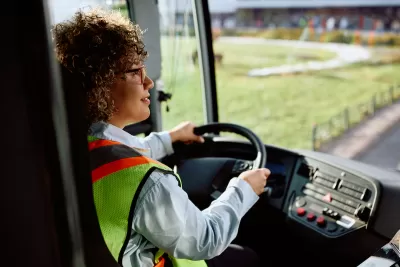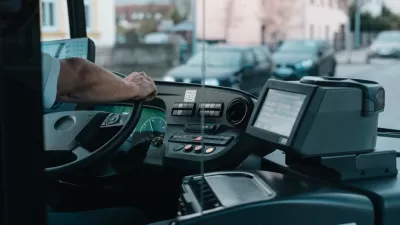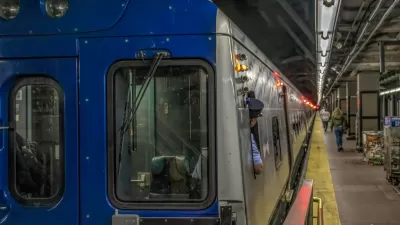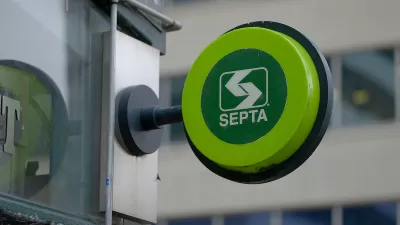Transit workers are being assaulted by riders at alarming rates, and inequity may be partly to blame.

“According to new research from the Urban Institute, America's transit workforce is experiencing an alarming increase in violent attacks, with incidents that resulted in a death or hospitalization climbing from 168 in 2008 to 492 in 2022,” reports Kea Wilson in Streetsblog USA. The study shows this may be in part due to larger issues such as poverty and inequality.
According to Lindiwe Rennert, senior research associate for the Urban Institute, “before disproportionately low-income and radically marginalized passengers even arrive at a bus or a train stop, they're carrying the weight of an unjust and violent society. And once they arrive, those indignities are often mirrored in the transit experience itself, including long waits at unsheltered stops with no seats, steep fares they can't afford, police violence if they're unable to pay, route maps, schedules, and services that weren't designed with their actual needs in mind, and a universe of other frustrations that can all too easily boil over.” In other words, the violence is often a result of the broader “rampant inequality that plagues riders,” or “how the public is lashing out from other inefficiencies.”
While these issues require solutions far outside the scope of transit agencies, Rennert says “improving service can be a ‘first step’ to calming transit riders’ frayed nerves, as can removing fares that often become a flashpoint for an assault.” Other suggestions include “physically separating drivers from passengers in clear-walled compartments, taking the burden of fare collection off of operators by enlisting ambassadors or eliminating fares entirely, and providing workers with de-escalation training to diffuse violent situations.”
FULL STORY: The Real Reason Assaults Against Transit Workers Are On The Rise

Alabama: Trump Terminates Settlements for Black Communities Harmed By Raw Sewage
Trump deemed the landmark civil rights agreement “illegal DEI and environmental justice policy.”

Study: Maui’s Plan to Convert Vacation Rentals to Long-Term Housing Could Cause Nearly $1 Billion Economic Loss
The plan would reduce visitor accommodation by 25% resulting in 1,900 jobs lost.

Why Should We Subsidize Public Transportation?
Many public transit agencies face financial stress due to rising costs, declining fare revenue, and declining subsidies. Transit advocates must provide a strong business case for increasing public transit funding.

Paris Bike Boom Leads to Steep Drop in Air Pollution
The French city’s air quality has improved dramatically in the past 20 years, coinciding with a growth in cycling.

Why Housing Costs More to Build in California Than in Texas
Hard costs like labor and materials combined with ‘soft’ costs such as permitting make building in the San Francisco Bay Area almost three times as costly as in Texas cities.

San Diego County Sees a Rise in Urban Coyotes
San Diego County experiences a rise in urban coyotes, as sightings become prevalent throughout its urban neighbourhoods and surrounding areas.
Urban Design for Planners 1: Software Tools
This six-course series explores essential urban design concepts using open source software and equips planners with the tools they need to participate fully in the urban design process.
Planning for Universal Design
Learn the tools for implementing Universal Design in planning regulations.
Smith Gee Studio
Alamo Area Metropolitan Planning Organization
City of Santa Clarita
Institute for Housing and Urban Development Studies (IHS)
City of Grandview
Harvard GSD Executive Education
Toledo-Lucas County Plan Commissions
Salt Lake City
NYU Wagner Graduate School of Public Service





























